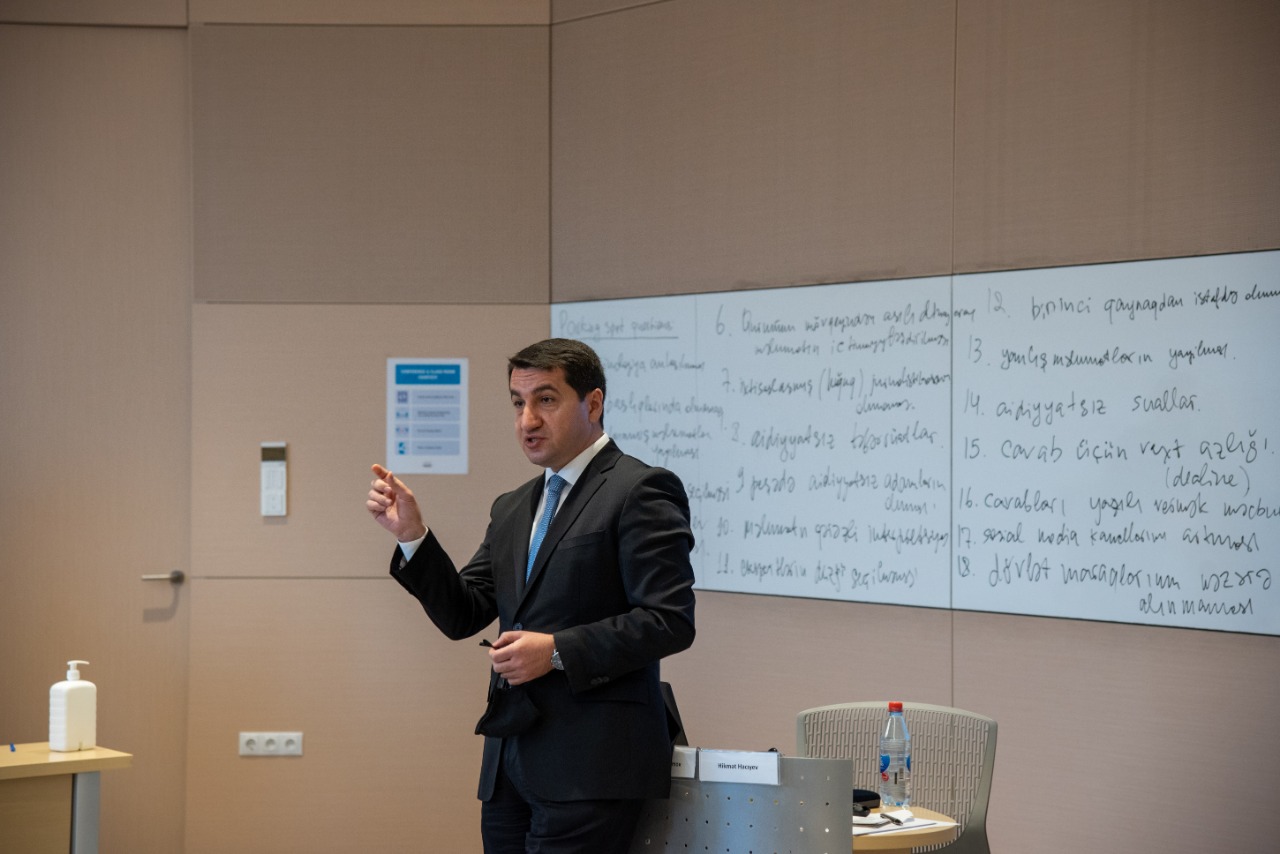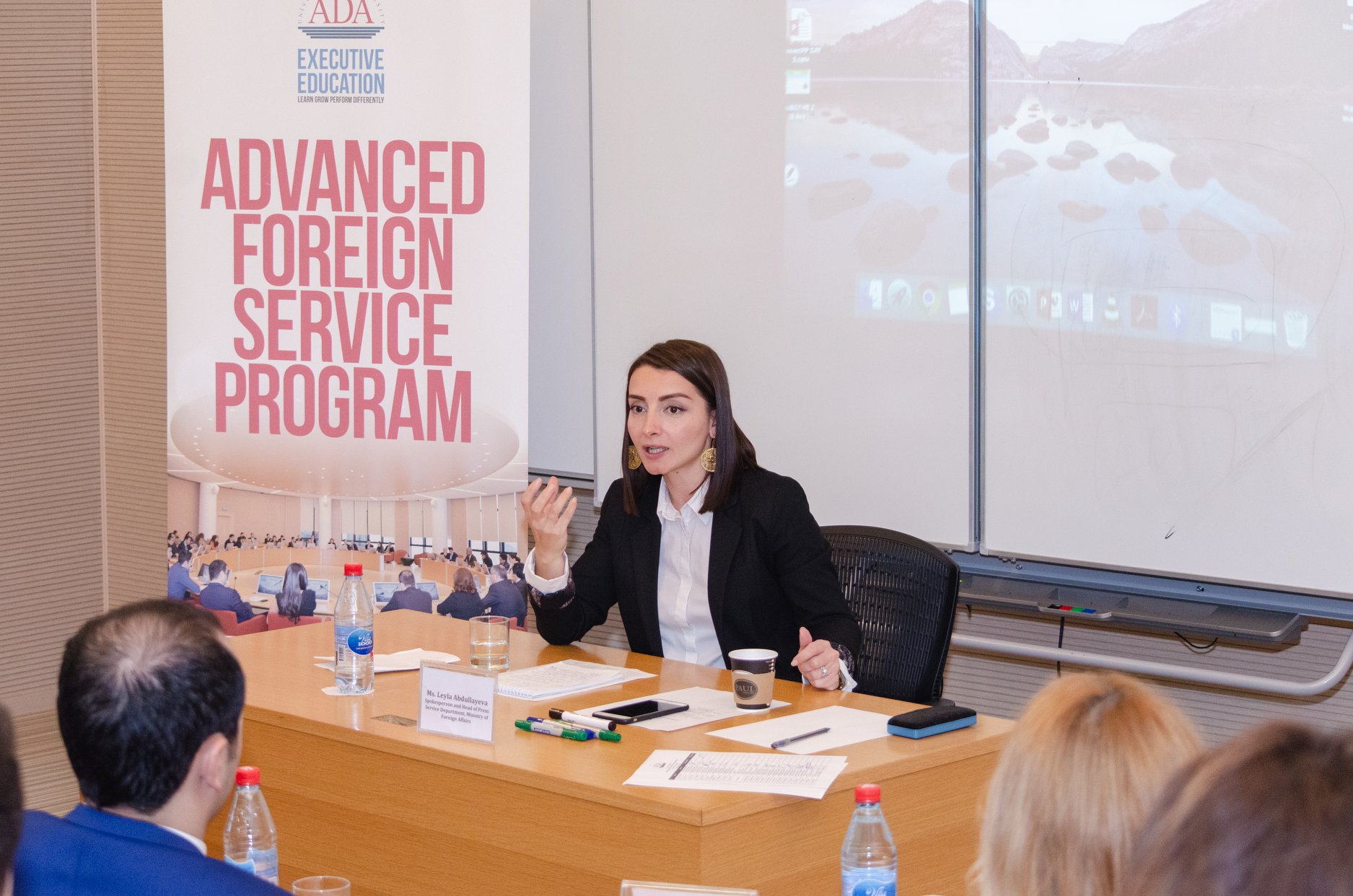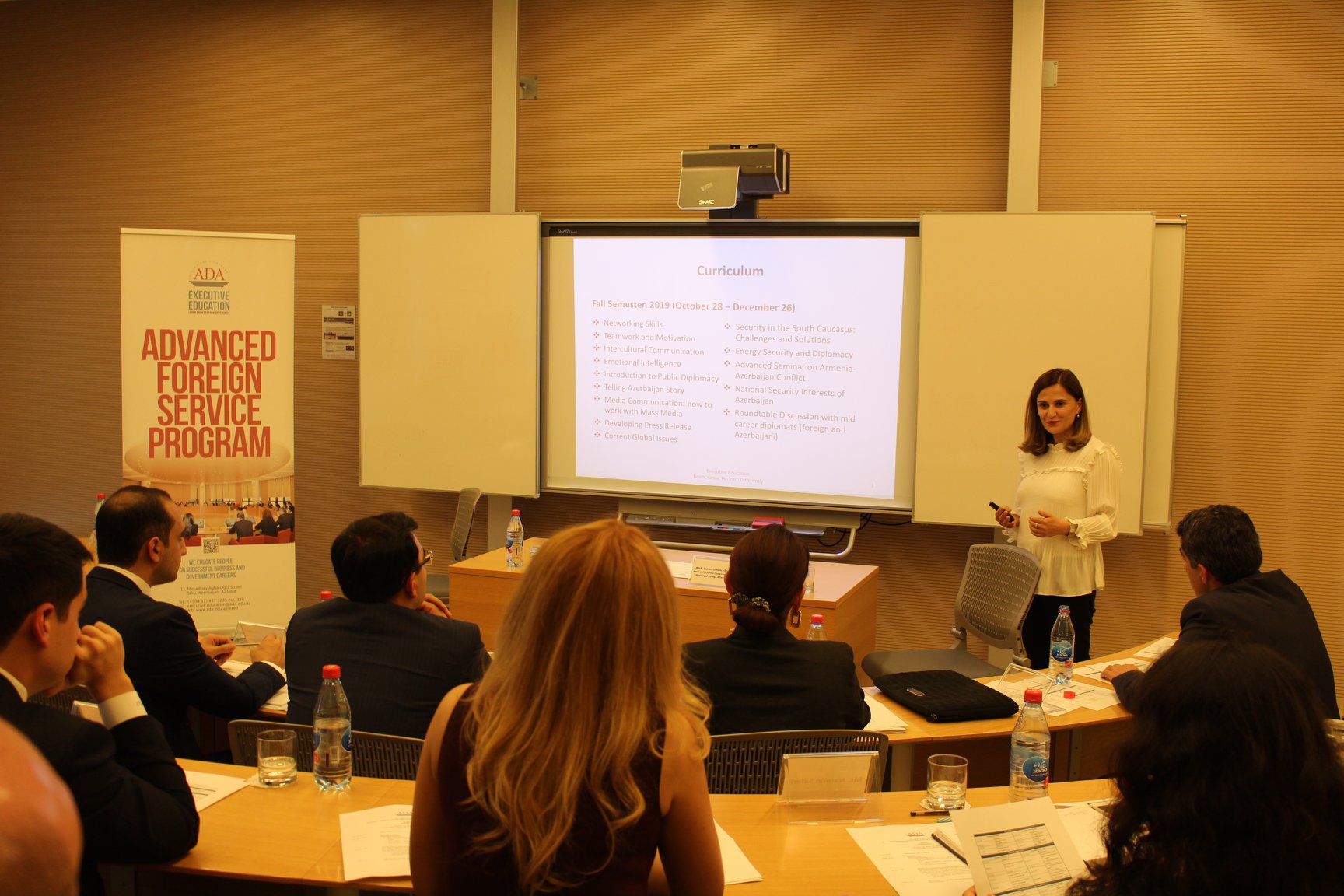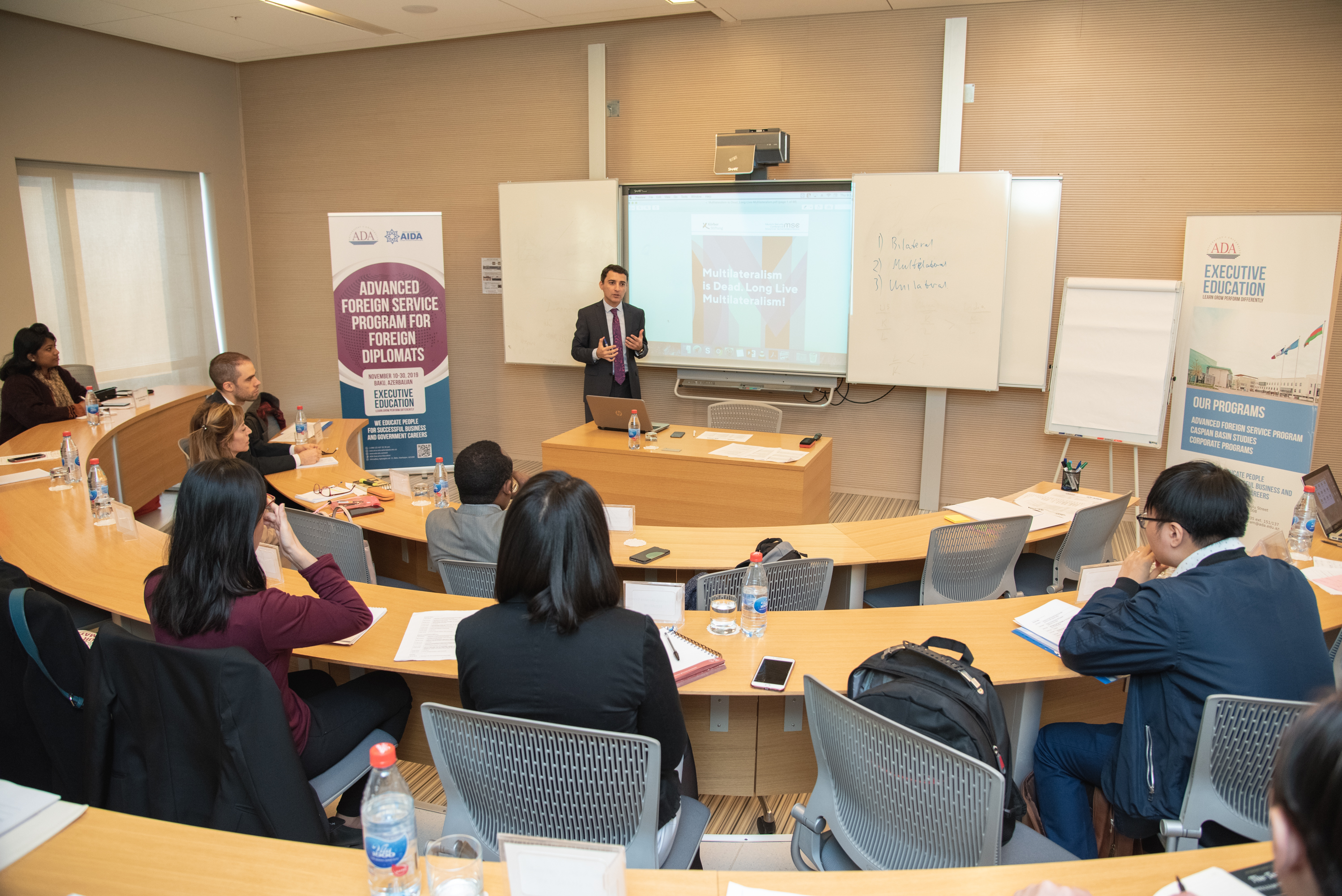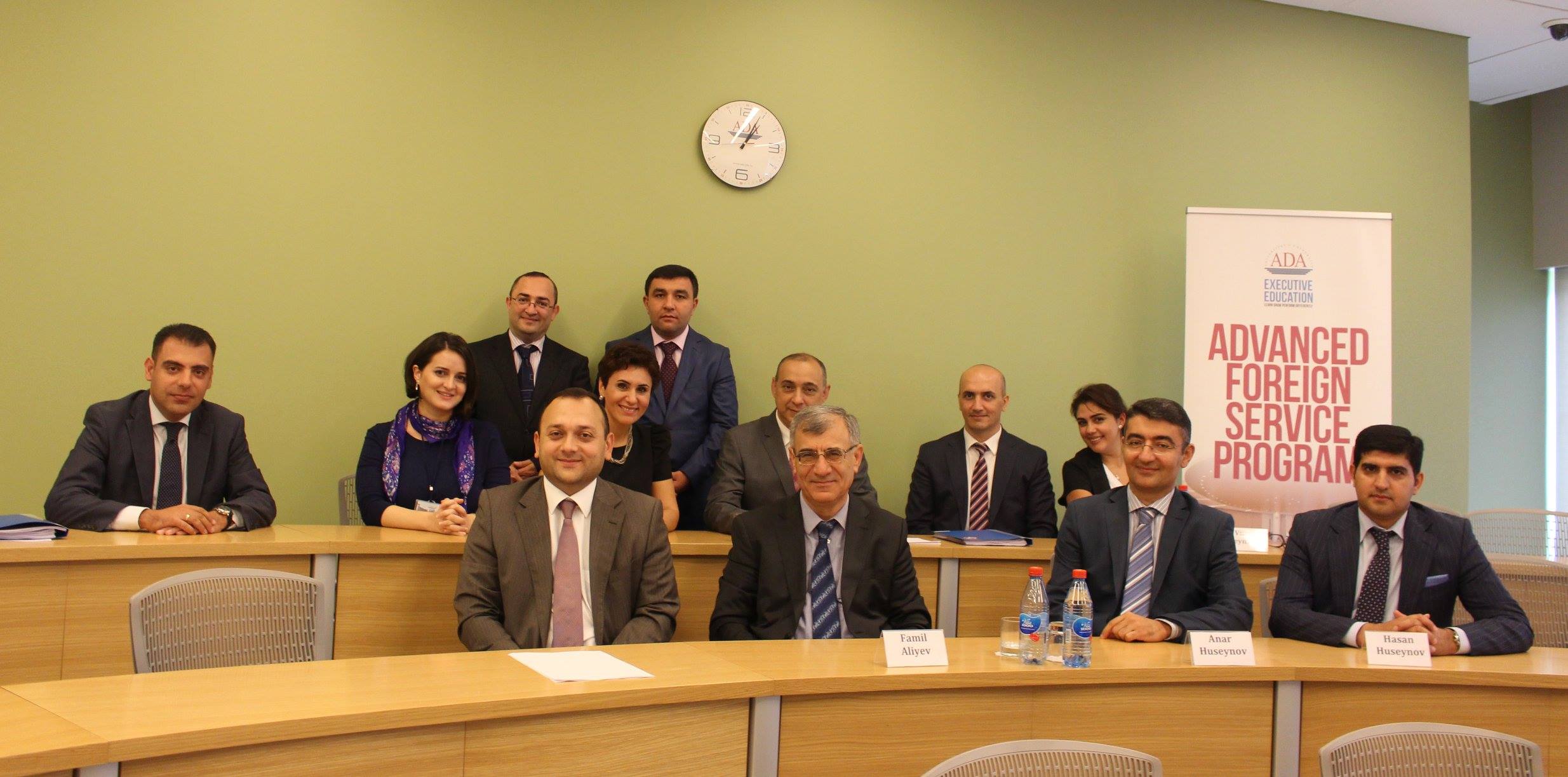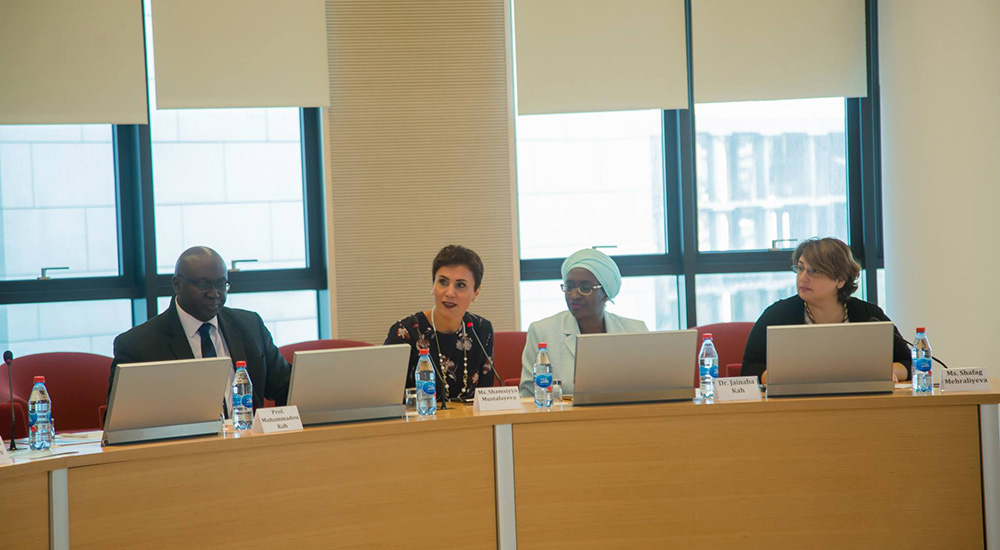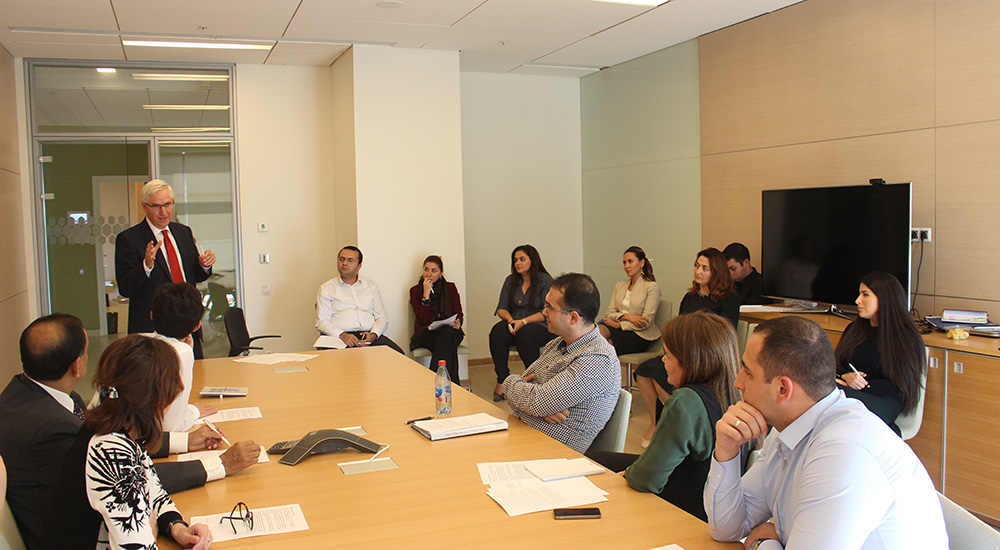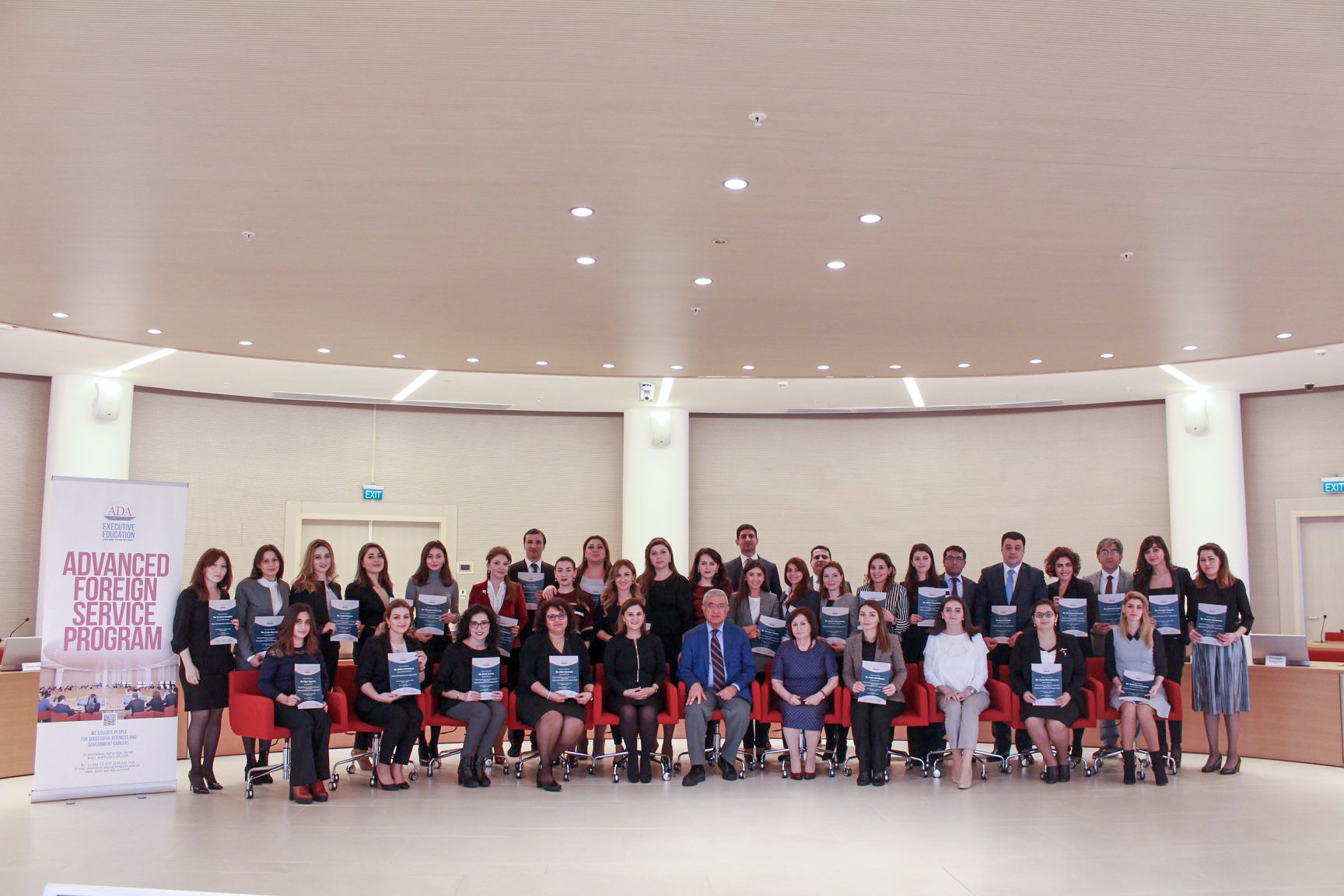

As a young, developing democracy, Azerbaijan faces an urgent need for strong people who can represent the country across the world. Azerbaijan has one of the world’s fastest growing and reforming economies; the country is booming and human capacity needs to catch up. Today, the development of civil servants and Foreign Service officers is of utmost importance. Our Advanced Foreign Service Program (AFSP) helps meet that need by providing officers with the specific training they require to meet the country’s requirements.
Entry-, mid- and senior-level officers all benefit from the program’s curriculum, which allows them to choose their fields of study in developing their particular management and diplomatic leadership skills. They also benefit from learning crucial skills needed for interagency dialogue and collaboration.
To ensure maximum interaction and personalized attention, no class size exceeds 30 students at one time. Two-thirds of the AFSP class is composed of Foreign Service officers, while one-third attracts civil servants from other agencies of the Azerbaijani Government.
AFSP is designed for Foreign Service officers and other civil servants working in the realm of international affairs. Civil servants get a unique chance to update their skills in international relations and other fields of study that could come in handy in their profession. They get to communicate with distinguished professors and trainers from prestigious universities, international organizations and think tanks of Europe, Asia, the United States and the Middle East. They also benefit from the ADA University faculty and guest speakers from the MFA and other government agencies.
The language of instruction in AFSP is English. Some public events are held in the Azerbaijani language. Participants receive an exceptional opportunity to enhance their skills of writing and speaking English.
AFSP holds two semesters per year, in the fall and spring. Enrollment starts two months prior to the start of a semester. Applicants should work in the field of international affairs and have an upper-intermediate or advanced level of English language proficiency.
AFSP lasts six months for entry-level civil servants. For mid-career civil servants, AFSP offers a three to four month, module-based program.
The six areas of study in the AFSP include:
